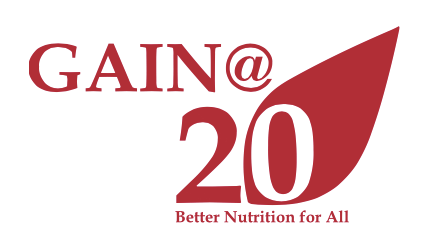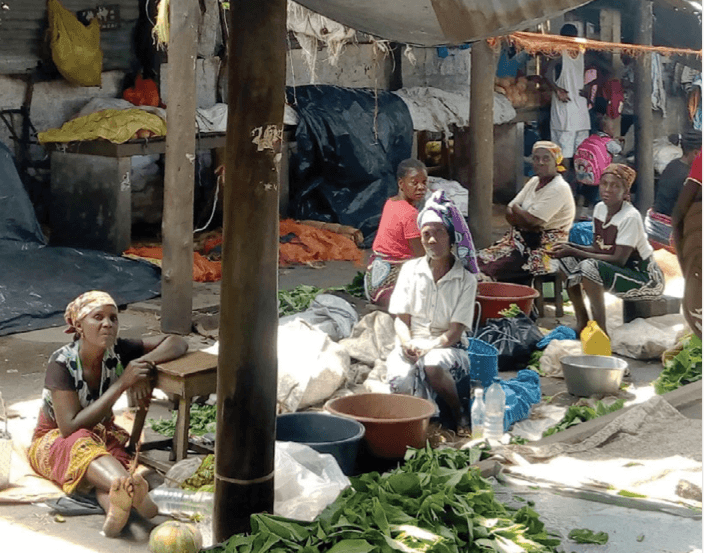The action and its aims
The initiative involved in-depth engagement with local stakeholders who were guided to co-design food policy options that could address Beira’s unique set of pandemic challenges and keep local markets functioning effectively. The results were presented to the local government and stakeholders in the form of a toolkit.
GAIN’s aim is to empower food market stakeholders, enhance municipal food policymaking and, ultimately, ensure the most vulnerable local people had access to nutritious food.
Why was it needed
Food insecurity was widespread in Mozambique before the arrival of COVID-19. In February 2020, the country was estimated to have 1.6 million people living with severe to acute food insecurity and 67.5 thousand acutely malnourished children.1 As the pandemic gained hold, this situation was projected to worsen, with a rapid increase in COVID-19 cases and deaths.2
To contain the spread of the virus, the national government introduced a curfew, mandatory face mask wearing and social distancing measures. Still, the pandemic took hold and the economic outlook worsened. Over 80% of Mozambicans reported a decrease in household income.3 Market workers particularly struggled due to shorter trading hours and a reduction in stalls in municipal markets because of social distancing.
Local hardships in Beira – the capital of Sofala province – were intensified by back-to-back environmental disasters. Sitting where the Pungwe River meets the Indian Ocean, Beira was devastated by three extreme weather events around the time of the pandemic; Cyclone Idai in 2019, Tropical Storm Chalane in 2020 and Cyclone Eloise in 2021.4Its infrastructure was decimated. Cyclone Idai alone destroyed a reported 176 municipal buildings, including marketplaces. In addition, climate-change-induced sea level rise created ongoing flooding problems for the city.
Even before the arrival of COVID-19, there was widespread malnourishment in the city’s population of just over half a million people, 5 with 70% affected by moderate to severe food insecurity.6 In the midst of repeated environmental crises, the pandemic and its linked economic slump, food scarcity reached alarming levels.
- Mozambique I Addressing the impacts of COVID-19 in food crises (fao.org)
- Mozambique: WHO Coronavirus Disease (COVID-19) Dashboard With Vaccination Data | WHO Coronavirus (COVID-19) Dashboard With Vaccination Data
- https://reliefweb.int/sites/reliefweb.int/fi les/resources/mozambique_rga_infographics.pdf
- https://unhabitat.org/sites/default/files/2021/05/covid19_wash_mz_web.pdf
- Summary Beira Municipal Recovery and Resilience Plan.pdf (dutchwatersector.com)
- Mozambique – Food Security Outlook: Tue, 2020-06-30 to Sat, 2021-01-30 | Famine Early Warning Systems Network (fews.net)
When was it introduced
| In July 2020, planning for the KFMW programme began. Implementation of the policy and coordination workstream started in late September 2020. Final workshops were conducted in November 2021, when the Beira Policy Options Toolkit became available. |
Who initiated it, who is involved
As well as local Mozambican and global GAIN teams, the initiative involved market vendors, women vendor groups, market committees and small and medium-sized enterprises linked to traditional urban food markets and county government policymakers from Beira.
A participatory, evidence-based approach involving the people on-the-ground was essential to understanding Beira’s unique pandemic food system challenges – and designing meaningful policy options to address them.
Impacts to date
In Beira, KFMW stakeholders prioritised the following challenges: cyclone-damaged market infrastructure, the need for cold food storage, limited water and sanitation services, unsafe food, increased food waste, debt, mental health stress and the lack of information.
To date, the Toolkit has provided the Beira city government with a raft of real-world ideas for improving local food policymaking. It outlines market stakeholders’ priorities and linked policy options in nine areas, with the top three as follows:
The priority was dealing with cyclone-damaged market infrastructure and roads. Policy options included the investigation of public-private partnership funding for new marketplace construction and the consideration of women vendors’ needs when designing and managing them – in terms of childcare spaces and equitable committee representation.
Water and sanitation services were identified as the next area of greatest need, with linked policy options including the establishment of a market stakeholder management team to support the management of new facilities. Cold food storage was the third issue. Food safety communications campaigns and the promotion of market food safety champions were just two of the suggestions in this area.
Note
GAIN’s Keeping Food Markets Working (KFMW) programme is an emergency response to the COVID-19 crisis, providing rapid support to food system workers, to small and medium enterprises supplying nutritious foods, and to keeping fresh food markets open. To find out more about this program visit https://www.gainhealth. org/impact/our-response-covid-19

